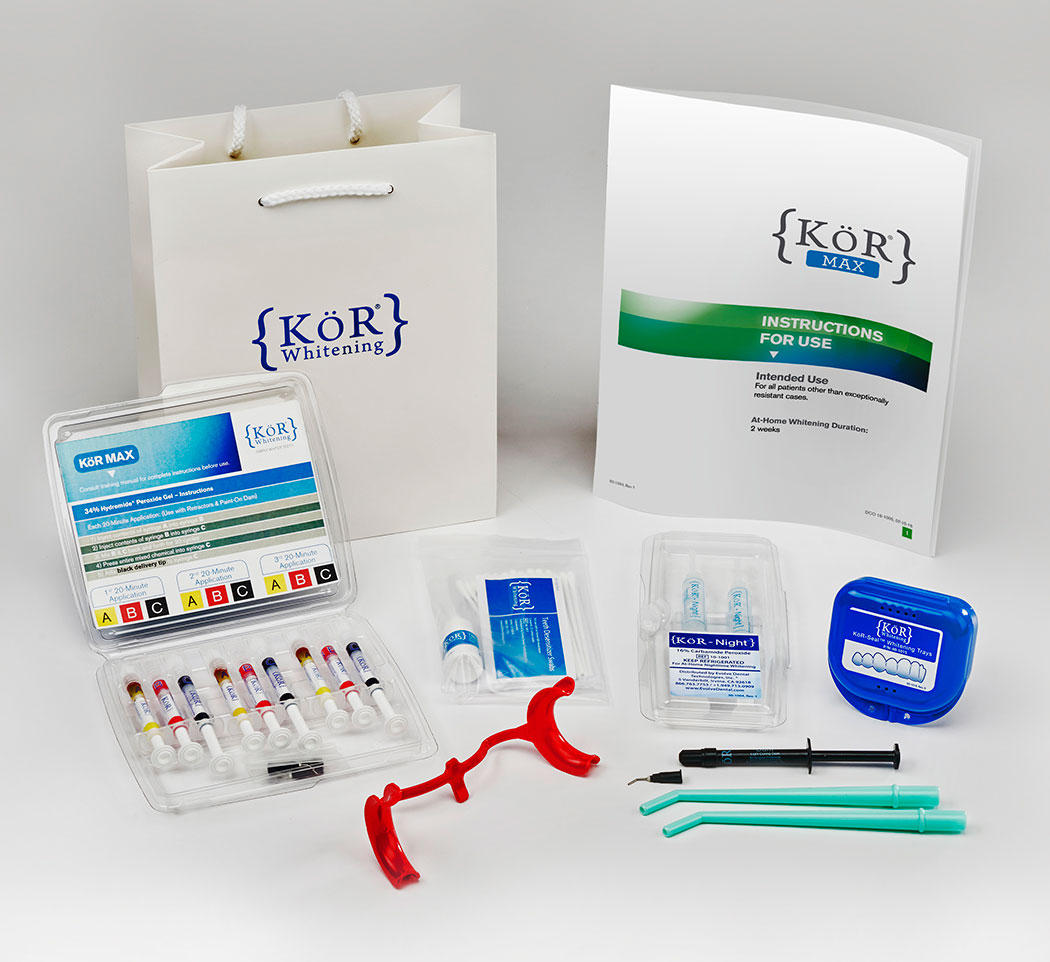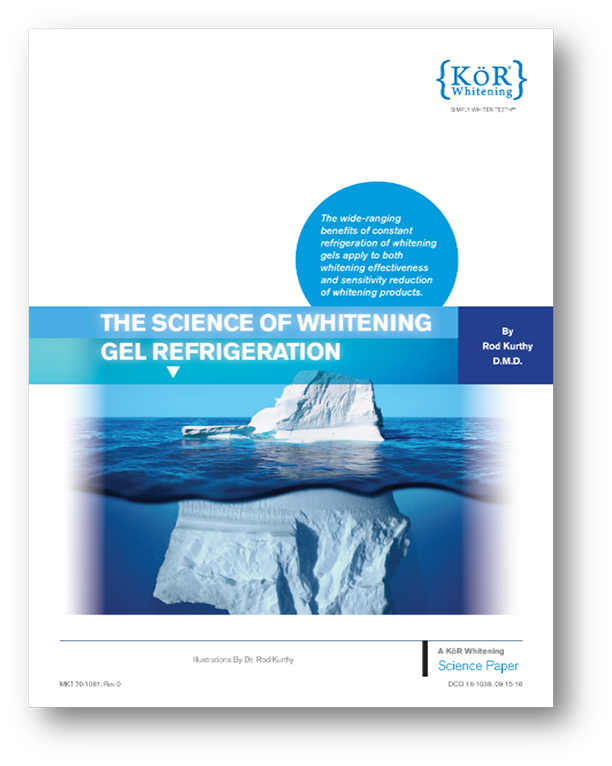From the moment they are produced, teeth whitening gels with hydrogen or carbamide peroxide will start deteriorating. The fact that the peroxide breaks down so quickly is what makes these gels effective for whitening teeth. So manufacturers have to come up with ways to prevent premature breakdown and keep the gels as potent as possible through storage and delivery. For this, there are two primary methods used: refrigeration and chemical stabilizers.
In this article, we will review the positives and negatives of both methods. Ultimately, though, the science has shown that constant refrigeration is, by far, the most effective approach.
Chemical Stabilizers
Manufacturers will include special chemical stabilizers in their whitening gels. This will reduce degradation a little, especially when the gel is introduced to non-refrigerated temperatures during storage and/or transit. However, because the gel is more stable, it will not break down as effectively in the patient’s mouth. As noted previously, the in-stability of peroxide gels is one of the key reasons they produce better whitening results.
Even when whitening gels include chemical stabilizers, there will still be significant premature degradation during storage and shipping when not refrigerated. Manufacturers can only include a small amount of any particular stabilizer. If they add too much, the gel will not be effective at all, since too much chemical stabilizer would prevent any effective breakdown during treatment.
“KöR Whitening’s continuously refrigerated gels will have a neutral pH level, so they do not damage tooth structure and there is less likelihood of whitening sensitivity.”
There are two standard types of chemical stabilizers that can be used, and each have their negative side effects:
Acidifier Chemical Stabilizers (commonly phosphoric acid)
These create an acidic environment, which slows the breakdown of the peroxide. However, the acidic element can demineralize enamel and dentin. It can also remove smear plugs, enlarge dentinal tubule orifices and increase osmolarity, all of which can result in increased whitening sensitivity.
Anhydrous Base Chemical Stabilizers
These will also slow the natural breakdown of peroxide, which reduces the whitening’s effectiveness. In addition, it makes it much more difficult for the bleaching factors of the gel to be released into the aqueous base of the teeth, which again leads to less whitening effectiveness. Anhydrous base chemical stabilizers also increase osmolarity and osmotic “pull” on dentinal tubular fluid that can result in increased whitening sensitivity.

The Importance of Refrigeration
When whitening products are not kept refrigerated during storage and shipping, they will be less potent because the peroxide will start breaking down way too early. Obviously, that means less effective whitening. Premature breakdown of the peroxide can also lead to increased acid content of the gel (lowering of pH during breakdown), damaged tooth structure and greater sensitivity/pain.
Constant refrigeration is always the best solution, and it’s the strategy we use for all KöR Whitening products. It allows for a longer shelf life (up to 18-24 months) without needing to include any chemical stabilizers that will hinder the whitening effectiveness during final treatment. In fact, constantly refrigerated whitening gels arrive at the dentist’s office with virtually the same potency as the day they were manufactured. These potent gels break down more thoroughly and more effectively in the mouth to produce better whitening results.
KoR Whitening’s continuously refrigerated gels will have a neutral pH level, so they do not damage tooth structure and there is less likelihood of whitening sensitivity.
The scientific facts don’t lie. As the first whitening product company to constantly refrigerate a full line of whitening gels, rather than using chemical stabilizers, KöR Whitening products provide a more effective, and less sensitizing whitening treatment solution.
For more information about our refrigeration process through storage and shipping, and the effectiveness of our whitening gels, contact us today.



